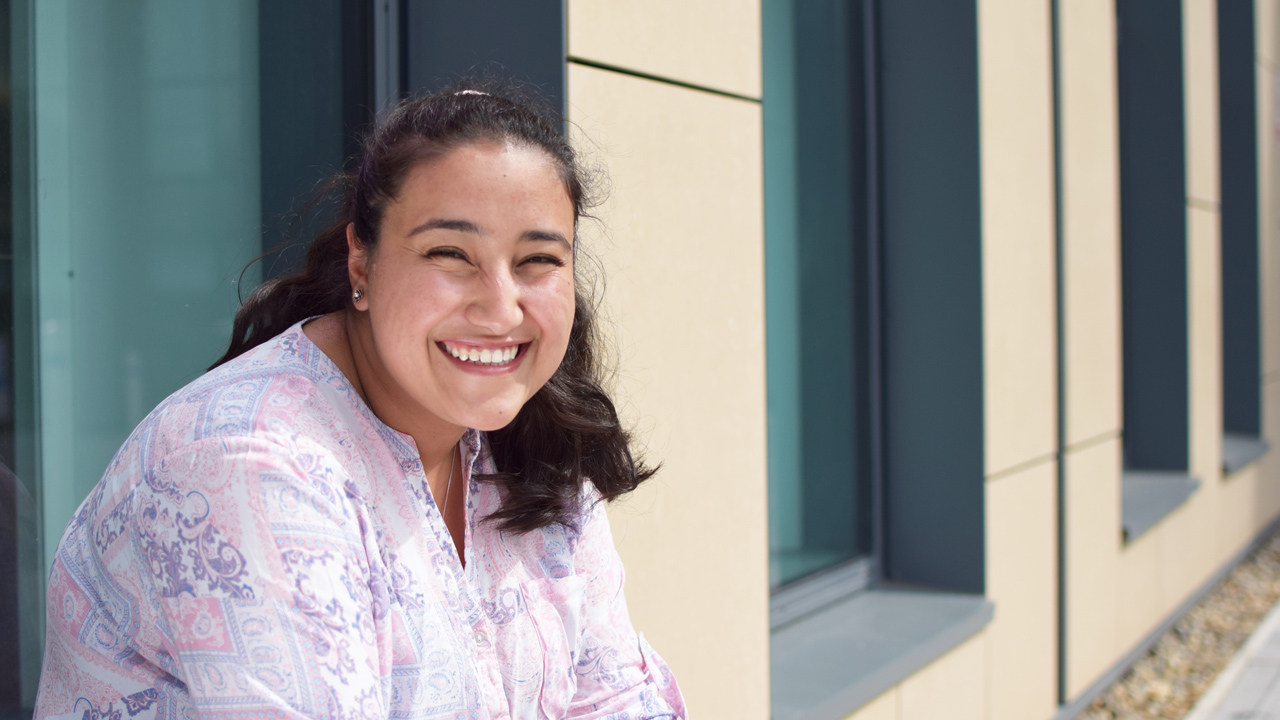Terrified for her life, Ghazala frantically crawled through the field as bullets fired overhead. She and her classmates were on their way home from school when they became caught in the crossfire. Later that day, her father took one look at her muddy clothes and frightened expression and said, "No more school."
It was 2011 and demonstrations against the President of Syria had escalated into full-scale civil war, which continues to this day. “It was a very uncertain time and everyone was staying at home,” Ghazala recalls. “Then things got worse – food stopped coming to the village, road blockages meant people couldn’t get to hospitals, there was no way to work and people supported each other through it.”
"The experience brought out the best in me"
Her village only had one doctor, who was overwhelmed by patients. “He asked my mum if she knew any nurses or people willing to learn and I jumped at the chance.” Aged 17, Ghazala became a nurse – sewing cuts, treating scorpion stings and acting as a midwife to women in labour.
“It was tough but the experience brought out the best in me and I realised I wanted to be a doctor. I was hoping to finish medical school when I was 21,” she says. “I wrote a timeline of where I wanted to be each year and then the war started and I learned not to plan too far ahead.”
Her dream of going to university was derailed when she caught the attention of Syrian government forces. “Everyone who had some sort of medical experience was investigated,” she explains. “They searched my house looking for medications and people I had been treating, in case I was helping the other side. It got to the point where I didn’t want to be a danger to myself or to my family.”
Despite her father’s protestations, Ghazala fled her homeland, leaving her parents and nine siblings behind.
A new start
Ghazala is one of more than 70 million people whose lives have been uprooted due to conflict, violence and persecution worldwide. For many, losing their home also means losing their security, livelihood and access to education. Some universities across the UK are stepping in to help.
Here at Bath we offer non-repayable bursaries for refugees and guaranteed accommodation throughout their course. A dedicated member of staff in Student Services provides personal support and one of the 50 Gold Scholarships we award each year is reserved for refugees, like Ghazala. “I can’t tell you how happy I was to know I was one of the lucky ones to get a Gold Scholarship,” she says. “I felt that I was looked after, in safe hands to start my degree.”
Ghazala is studying Biomedical Sciences, finally able to plan ahead and pursue her ambitions.
Find out more about the Gold Scholarship Programme:
